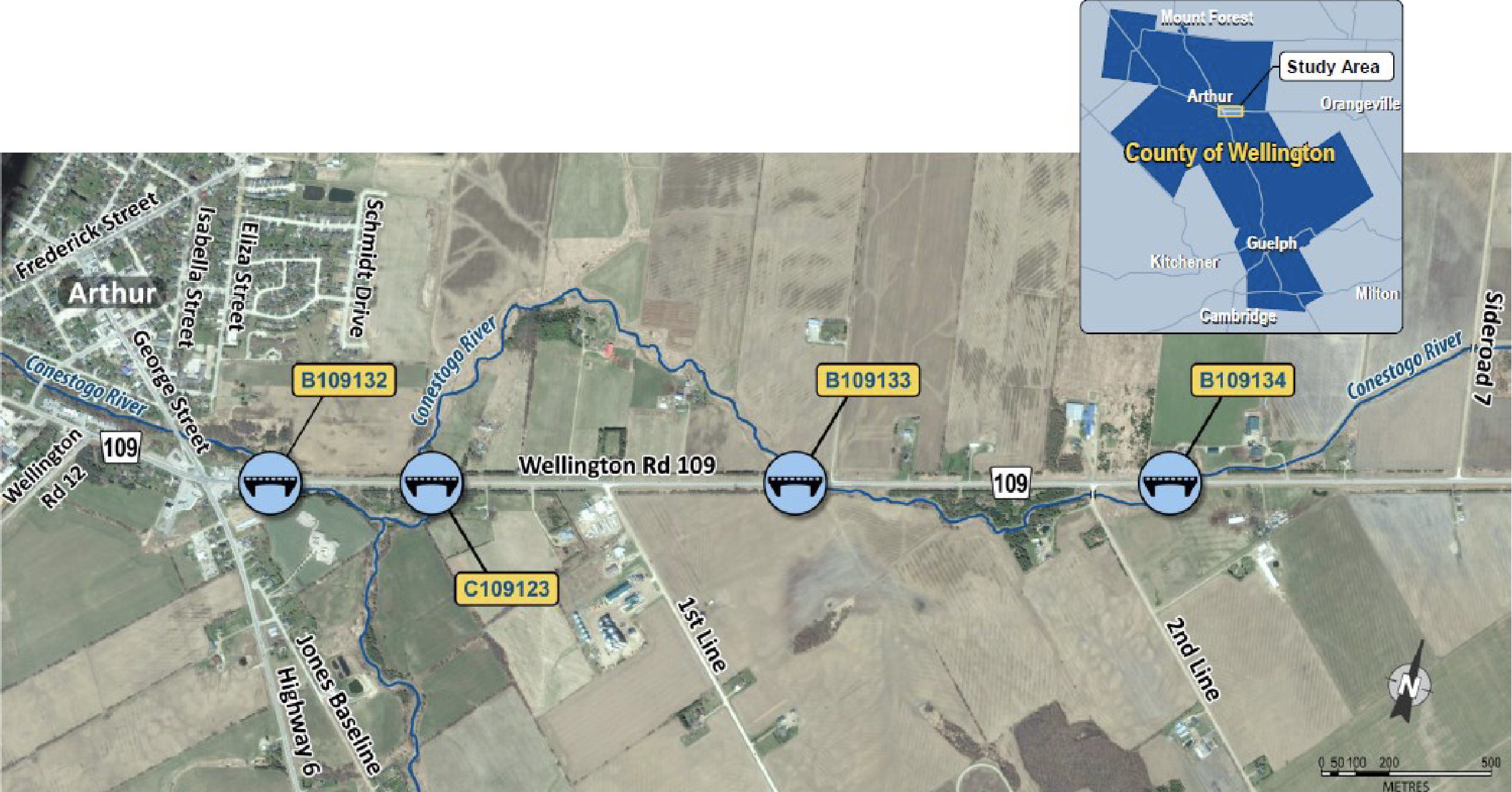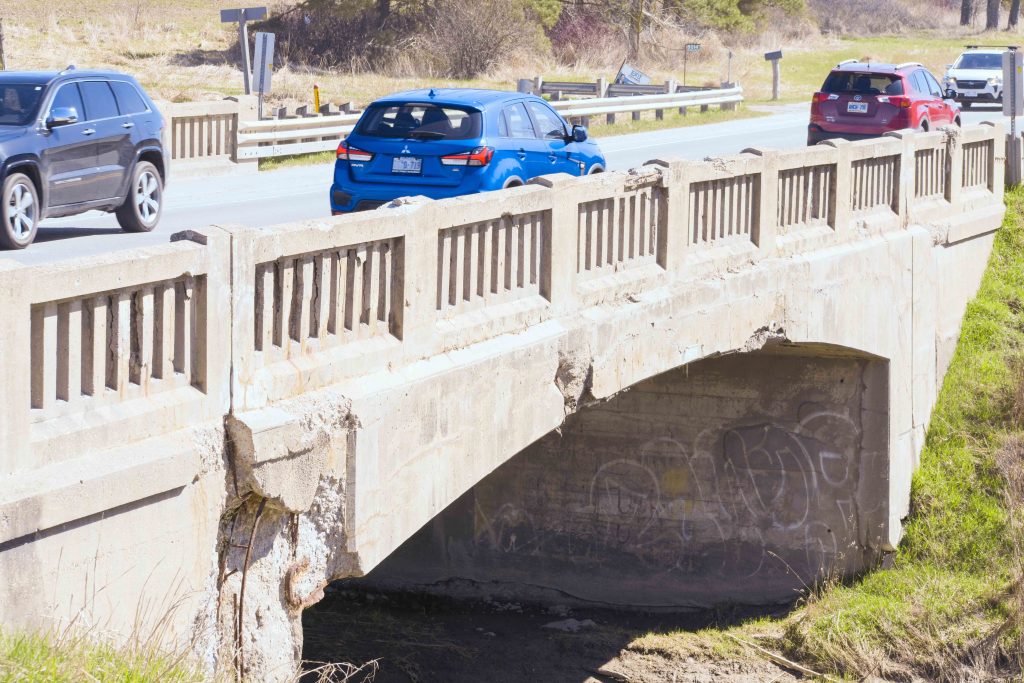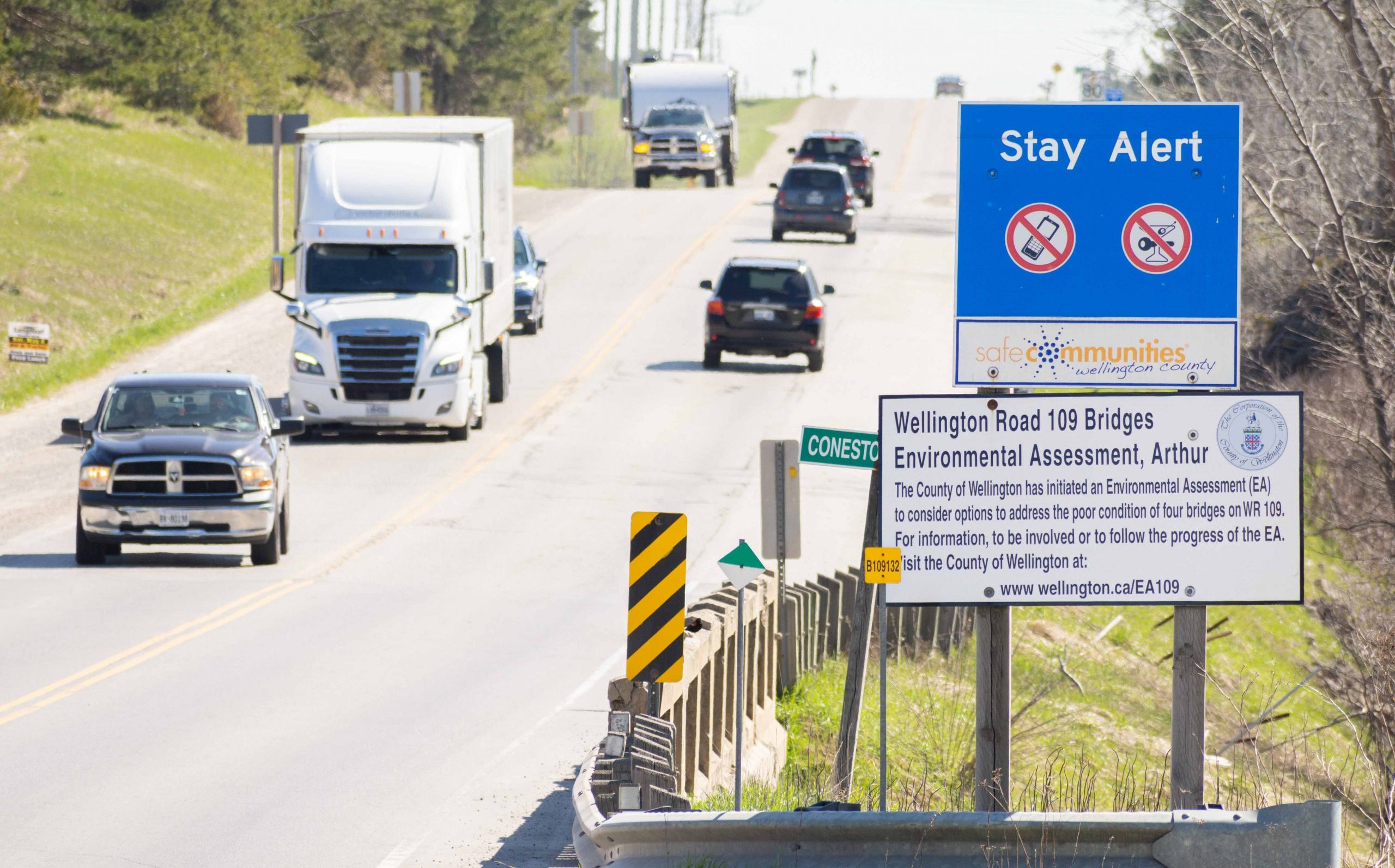WELLINGTON NORTH – Cracks, erosion, exposed steel, corroded rebar, misaligned rails, and concrete chunks missing.
It’s time for four bridges crossing the Conestogo River along Wellington Road 109, built by the province in the 1930s, to be replaced.
Responsibility for the bridges was handed down to Wellington County in 1998, and they have since fallen into an “advanced state of deterioration.”
Some of the bridges don’t meet current standards, or have the ability to handle flooding. If the bridges aren’t replaced, weight restrictions and outright closures are in store.
That analysis comes from a 159-page WSP Canada environmental assessment report published in April.
The county commissioned WSP to conduct the assessment and examine options for dealing with the four rigid-frame and barrel-arched bridges — all of which run along a 3km stretch east of the Highway 6 and Wellington Road 109 intersection in Arthur.
Complete replacement of the bridges was recommended by the Thornhill-based consultant.
The other choices were repair, realigning Wellington Road 109, or doing nothing.

This map illustrates the locations of four Wellington Road 109 bridges to be replaced. Image from WSP environmental assessment
The replacements could cost $16 million, but that’s a preliminary estimate provided by WSP, and as the county has experienced as of late, the project’s price tag is almost certain to change.
The early estimate also doesn’t consider the cost of relocating utilities, such as hydro poles and lines.
The federal government has committed to providing the county with $4.2 million toward the total project cost, which is budgeted in the county’s 10-year plan at $18.25 million.
With the environmental assessment complete, early drafts of bridge designs from multi-national engineering firm Gannett Fleming are being reviewed.
County roads manager Joe de Koning anticipates construction beginning in the latter half of 2025.
A construction schedule isn’t finalized, but de Koning said the county wants the work wrapped up in under four years.
It’s expected the county will have a better idea about the project’s scale with more calibrated designs from Gannett Fleming by the fall.
Each bridge would be replaced by a welded plate or concrete girder design, estimated to cost between $3.4 and $4.2 million per bridge. Asphalt repaving between the bridges is also planned.
Two-way traffic will be maintained at the bridge closest to the Tim Hortons and gas station near the Highway 6 intersection, and at a second bridge, a little over halfway between Arthur and 1st Line.
The number of lanes at the other two bridges between 1st Line and Sideroad 7 is not known, but the county is pushing for two-way traffic at each location.

Known as “B109132” or “Conestogo River Bridge #6,” this bridge is located a couple hundred metres east of Highway 6 in Wellington North. Built by the province in 1931, recent assessments have found it to be in a severe state of deterioration, with several cracks exposed reinforcing steel and a collapsed retaining wall – to name some of the issues. Photo by Jordan Snobelen
Wellington North Mayor and county Warden Andy Lennox said traffic management will be challenging.
The idea of working on two bridges at a time to get the work out of the way sooner was discussed at a recent county roads committee meeting, Lennox said.
The WSP analysis noted 2018 data suggesting nearly 8,100 vehicles travel along the regional transportation route each day.
Trucks accounted for 17 per cent of that traffic, and large farm equipment and horse-drawn carriages also rely on the roadway. Traffic volume is projected to increase to 8,570 vehicles per day by 2025.
WSP also considered realigning Wellington 109, which would create a new roadway and eliminate three of the existing bridges with only a single river crossing.
However, the estimated cost was pegged at $23 million, and the project would cut through farms, create more sideroads, require extensive archaeological assessments, affect drainage, and slightly increase travel time.
Elsewhere on Wellington Road 109, Cambridge-based Brantco Construction repaved a section between the county’s border with Dufferin and Wellington Road 16 last summer.
And the county recently awarded a $2.62-million contract to the same company to repave Wellington Road 109 between Teviotdale and Harriston.
Work on the 10km stretch is expected to begin in late May and finish mid-summer.



